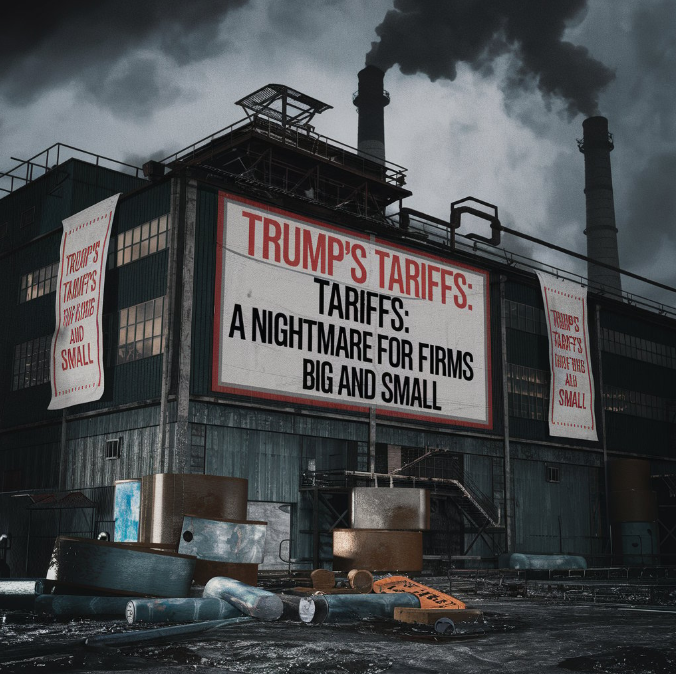Tariffs lead prices to rise everywhere, which sets off a vicious cycle for companies as well. This cycle may result in bankruptcies, layoffs, and higher costs for the survivors’ clients.
Why it matters The anguish is acute, but the cycle is just beginning.
This weekend will be a race to figure out how to survive the new world order, from tech companies whose batteries require the minerals China recently cut off in retaliation, to bakers whose pastries depend on newly levied imported vanilla, to clothing retailers who source all of their production from heavily tariffed Asian countries.
The larger picture: The Russell 2000, a comprehensive indicator of the small firms in the stock market across sectors, is a good stand-in for Main Street enterprises, but the stock market itself is not the economy.
Just this year, it has dropped by over 20%.
That alone does not cause a company to shut down, but it does reveal something about the public’s optimism in their future.
“The market is like a real time poll… this is going to impact all businesses in one way or another undoubtedly,” stated Ken Mahoney of Mahoney Asset Management on Friday.
Zoom out: There are early indicators everywhere, no matter how big or tiny.
According to the electronics trade association IPC, the price of essential components sourced from abroad is expected to increase by 30% to 50%. The components you need from elsewhere will rapidly become pricey, even if you’re currently producing domestically.
The automaker Stellantis lay off hundreds of workers and halted operations at several locations.
Lindsay Corp., an irrigation firm, said that the tariffs would raise the cost of its products, which it would then pass on to its clients. Foreign retaliatory tariffs on U.S. products are now putting pressure on those customers, who are farmers.
Even though it’s just April, Christmas is already becoming more difficult. Nintendo had to cancel the pre-order date for their new video gaming system 48 hours after it was announced. It turns out that the nations where it is made are now subject to high tariffs.
In summary, companies must make plans. They can’t in this setting.
